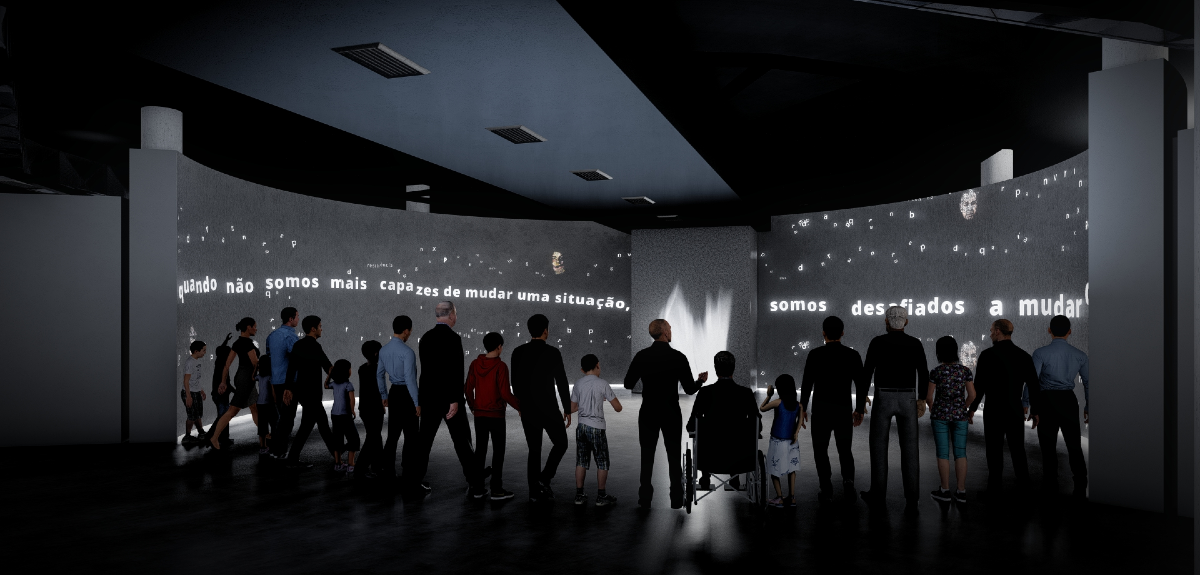The Memorial to the Victims of the Holocaust
IDG is to inaugurate the Memorial to the Victims of the Holocaust, a new museum in Rio de Janeiro, for which the institute is designing the curatorial strategy and developing and implementing the museography and exhibit design, in partnership with SuperUber, as well as the educational program, accessibility, communication and management plans. Produced by the Holocaust Memorial Cultural Association, with institutional support from Rio de Janeiro City Hall and sponsored by Multiplan, Banco Safra and RJZ Cyrela, among other partners, the memorial is designed to be a place for the preservation, study and dissemination of the stories and educational legacy of the Holocaust.
For those responsible for executing the project, a common point is an inherent understanding of the need for democratic institutions and values to be cultivated and protected, given that they are not automatically maintained without a certain degree of effort.
The Memorial to the Victims of the Holocaust intends to focus on the stories of the victims, on their lives before, during, and afterwards. The idea is to provide a space for reflection on the importance of human rights, democracy, justice, tolerance, freedom, respect for diversity and pluralism as fundamental ethical values and principles for humanity. For those responsible for executing the project, a common point is an inherent understanding of the need for democratic institutions and values to be cultivated and protected, given that they are not automatically maintained without a certain degree of effort. The Memorial also undertakes to work towards promoting a deeper understanding of the roots and ramifications of prejudice, racism and the construction of stereotypes in order to identify and combat them. The museum assumes an educational role in this process.
It is important to emphasize that the museum will not host an exhibition about the history of Nazism but will focus instead on those who suffered its acts and consequences. The limelight is given to life rather than death. Historiographic concepts will be approached through personal narratives, using the nuclei “individual”, “family” and “social group”. In addition, the Memorial intends to show that Jews were not the sole victims of the Holocaust, which also affected other minorities, such as Afro-descendants, gypsies, people with physical and mental disabilities, people identifying as LGBTQI+, Jehovah’s Witnesses, Masons and others.
In addition, the Memorial intends to show that Jews were not the sole victims of the Holocaust, which also affected other minorities, such as Afro-descendants, gypsies, people with physical and mental disabilities, people identifying as LGBTQI+, Jehovah’s Witnesses, Masons and others.
The main areas of the museum's long-term exhibition will be the Celebration of Life; Life Before the Holocaust; Life During the Holocaust; Life After the Holocaust. The venue’s balcony will feature a contemporary art installation on Human Rights, the artwork “Alameda dos 18 Princípios” (18 Principles Avenue) will decorate the exit, and the obelisk “Não Matarás” (Don't Kill) will be placed on the top of the building.
The Memorial to the Victims of the Holocaust project marks a new phase in IDG’s trajectory, involving the development of temporary exhibitions, educational and accessibility programs. IDG also provides consulting services on designing, shaping, formatting and managing the various stages of project implementation, including developing the scope, raising funds and guaranteeing adherence to Brazil’s specific tax incentive laws, where applicable, as well as directly managing the implementation process.
The Memorial was Idealized by MP Gerson Bergher (in memorian).


